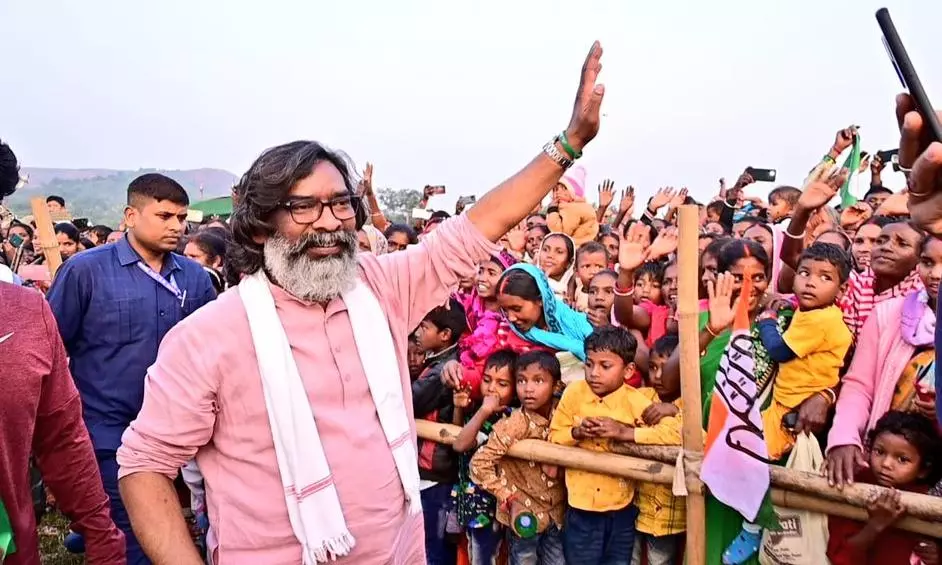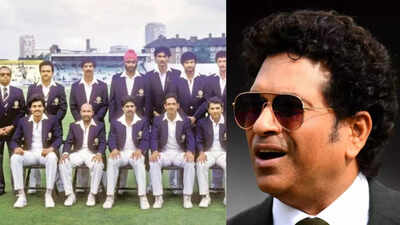
New Delhi, Ranchi, Mumbai: The high decibel campaigns for Jharkhand and Maharashtra drew to a close on Monday for the second and final phase of polls to be held on November 20. In Jharkhand , the remaining 38 of the total 81 seats go to polls while all the 288 assembly seats of Maharashtra will go for voting on November 20 and votes will be counted on November 23 for the both states.
Eighteen of the 38 constituencies going to polls fall in the Santhal Paragana region comprising six districts. The NDA has been alleging during electioneering that large-scale infiltration took place in Santhal Paragana during the past five years of the JMM-led regime.
A total of 1.23 crore voters including 60.79 lakh women and 147 third gender voters are eligible to participate in the voting on Wednesday.
Altogether 528 candidates – 472 men, 55 women and a third gender person – are in the fray in 38 seats. Out of the 38, eight are reserved for scheduled tribes and three for scheduled castes. A total of 14,218 polling stations have been set up in both rural and urban areas for the second and final phase of elections.
Prominent among the candidates include Chief Minister Hemant Soren, his wife Kalpana Soren (both JMM), his sister-in-law Sita Soren (BJP), state BJP president and ex-CM Babulal Marandi, Assembly Speaker Ravindra Nath Mahto (JMM), AJSU Party chief Sudesh Mahto and Leader of Opposition Amar Kumar Bauri (BJP).
In the second phase, voting will be held on November 20 from 7 am to 5 pm. However, in 31 booths, the voting time will end at 4 pm, though people standing in the queue at that time will be able to vote.
The Jharkhand’s chief electoral officer said since the implementation of the Model Code of Conduct, a total of Rs 196 crore worth of illegal material and cash has been seized.
Both the NDA and INDIA bloc pulled out all the stops to ensure their victories in the upcoming elections with the former concentrating on ?infiltration, corruption and scams? while the latter focused on tribal rights and welfare issues and how they were being harassed.
In the 2019 assembly elections, the contest was close, with the JMM winning 30 seats and the BJP securing 25, down from 37 in 2014. The JMM-Congress-RJD alliance won a comfortable majority with 47 seats.
In Maharashtra, the ruling BJP-led Mahayuti alliance vying to retain power and the Maha Vikas Aghadi (MVA) combine hoping for a strong comeback.
The election campaign saw prominent leaders like Narendra Modi, Amit Shah, Rahul Gandhi, Priyanka Gandhi Vadra, and many Union ministers crisscrossing the state to garner votes for their candidates.
The Mahayuti, comprising the BJP, Shiv Sena led by Chief Minister Eknath Shinde, and the Nationalist Congress Party led by Deputy Chief Minister Ajit Pawar, is banking on its popular schemes like Majhi Ladki Bahin for women helping it retain power.
The BJP’s use of slogans like “Batenge toh katenge” and “Ek hai toh safe hai” prompted the opposition parties to accuse the Mahayuti of polarising voters along religious lines.
The Maha Vikas Aghadi (MVA), comprising the Congress, Shiv Sena (UBT) and NCP (Sharadchandra Pawar), slammed Uttar Pradesh Chief Minister Yogi Adityanath’s use of “Batenge toh tenge” and PM Modi’s “Ek hai toh safe hai? slogans.
Not all the BJP allies supported these slogans. Mr Ajit Pawar, distanced himself from them. Deputy Chief Minister Devendra Fadnavis attempted to clarify the meaning of the slogans, leading to confusion within the ruling alliance.
The BJP in is contesting the November 20 elections in 149 seats, Shiv Sena is in the fray in 81 seats, and the Ajit Pawar-led NCP has fielded candidates in 59 constituencies.
The Congress has fielded 101 candidates, Shiv Sena (UBT) 95, and NCP (SP) has put up 86 candidates.
Smaller parties, including the Bahujan Samaj Party and the All India Majlis-e-Ittehad-ul-Muslimeen (AIMIM), are also contesting, with BSP fielding 237 candidates and AIMIM 17 in the 288-member Lower House.
Among these candidates, 2,086 are independents. Rebels are in the fray in over 150 constituencies, with candidates from the Mahayuti and MVA contesting against their party’s official nominees.
The number of registered voters has increased to 9,63,69,410, up from 8,94,46,211 in 2019, with addition of 69,23,199 new voters.
The state electorate also includes 6,36,278 voters with disabilities and 1,16,355 voters from the armed forces. Of the total electorate, 12,43,192 voters are over the age of 85, with as many as 47,716 centenarians, according to the official.
There will be 1,00,186 polling booths in Maharashtra this time, compared to 96,654 booths in the 2019 assembly elections. This increase is due to the rise in the number of voters.Around six lakh state government employees will be involved in election duties.






